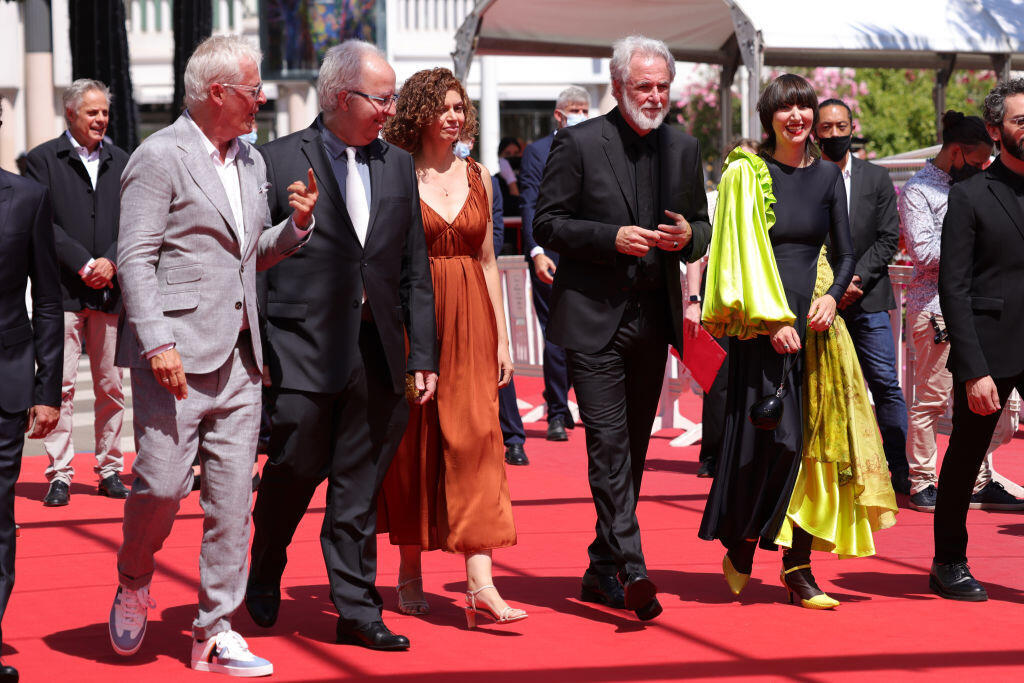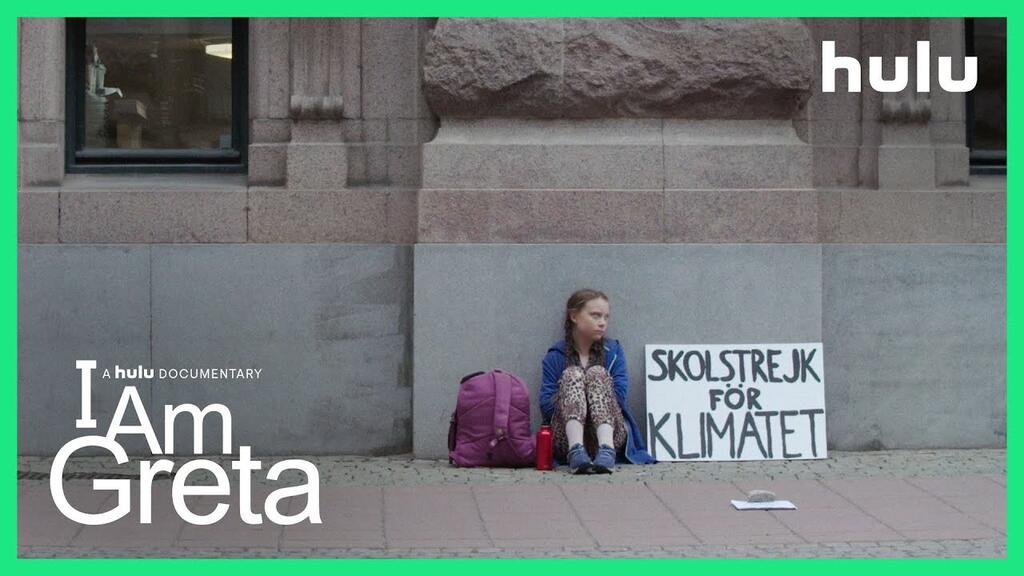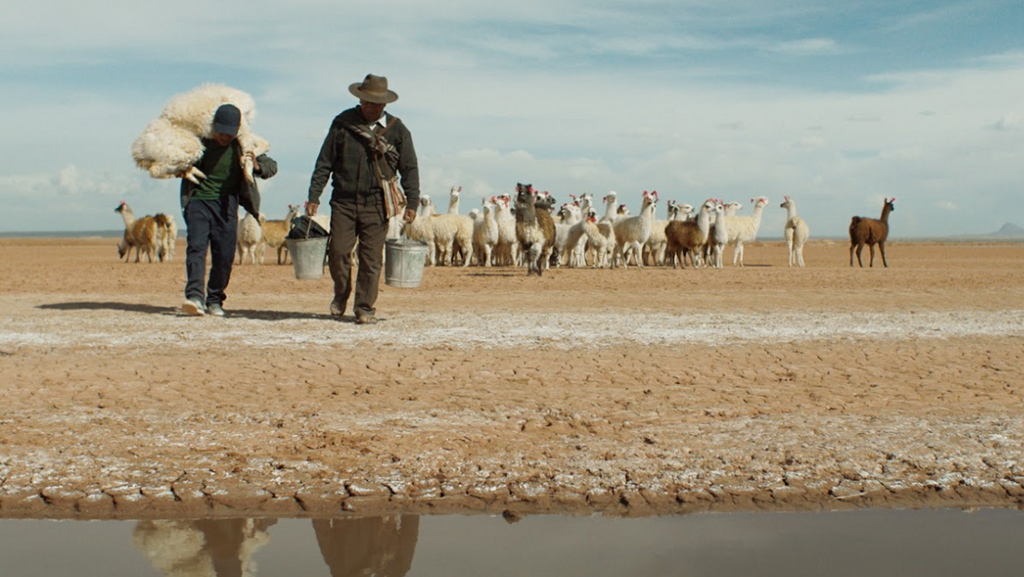The Cannes Film Festival, which opened this week, is becoming greener – starting with the most famous red carpet in the world that has been reduced, through the plastic bottles that will be eliminated, to the use of electric vehicles that will transport the actors to the festival Palais. "We are taking action to protect the planet," they stated at the film festival.
In December 2022, the participants of the 35th European Film Awards ceremony (the European version of the Oscars), held in Reykjavík, Iceland, were surprised to discover that a red carpet was not rolled out at the entrance to the hall. The traditional carpet was replaced by a spectacular and unique art installation, which was a tribute to the Icelandic nature and its magical landscape.
It turns out that the organizers of the event decided to avoid shipping the red carpet to Iceland for environmentally friendly reasons. Instead, Icelandic artists were asked to create a sustainable art carpet made from local products and materials, to reduce the carbon footprint. The architecture of the "Harpa", where the award ceremony took place, is inspired by Icelandic nature and the structure is based on columnar basalt. Therefore, the artists decided that the art carpet should bring the unique Icelandic nature within the walls of Harpa.
Thus, the inspiration for the Art Carpet was drawn from the uniqueness of the Icelandic landscape, for example lava fields covered with wooly fringe moss, which makes the landscape look unearthly. The artists used otherworldly elements from nature such as wool and sawdust, using variety of techniques from the textile world. The art installation is designed to have a second life and will be used for other events as well.
It turns out that the Icelanders were not pioneers on the subject. Already in 2009, the Tokyo International Film Festival demonstrated green awareness and decided that with all due respect to the red carpet, they prefer a green carpet, which is made of 23 thousand recycled plastic bottles. The theme of the Tokyo festival was ecology, including a film that depicted a hunt of dolphins in Japan.
Sigourney Weaver, the star of the "Avatar" movies, who is known for her green activities to preserve the natural environment and was the guest of honor at the opening ceremony, was happy to walk on the 200-meter-long green carpet, saying "I'm very excited and very proud to be on the 'green' carpet, I think it's a wonderful idea." Since then, the green color has become one of the symbols of the Tokyo Film Festival, and could be seen on bowties, ties, and gift boxes offered to the guests.
Even the Cannes Film Festival, which adheres to tradition and classics and sticks to the ceremony rules, understands that it also has to adapt to the spirit of the times: at the 77th Festival, which will open this Tuesday on the promenade of the French resort city, the volume of the most famous carpet in the world, which stretches over the steps of the Festival Palais, will be reduced.
"650m2 of carpeting from the red carpet eliminated", boast the producers of the world's largest and most glittering film event. "The red carpet replacement rate has been halved since 2021, thereby saving close to 1,400 kilos of material every edition", they add. Also, the producers try to reduce the replacement rate of the carpets and rely on cleaning and recycling, while using new ones as little as possible.
The changes in the red carpet are a good example of a rising trend: international film events and festivals are trying to be greener and deal with the climate crisis and climatic issues by showing that they too are contributing to the fight.
First, the major festivals (Cannes, Berlin, Venice) stopped handing out bags to media representatives and refrained from printing catalogs and information brochures. Between 2019 and 2021, the Cannes Film Festival slashed its usual volumes of printed materials by 79% by continuing efforts to digitalize publications and tickets and cut back on print runs. Film promotional materials for the press are now fully digitalized, too.
The organizers of Cannes don't stop at that - Since 2021, the festival has been committed to a voluntary carbon contribution scheme, which has been systematized in 2021 with the introduction of an eco-contribution of €20 exclusive of tax for all accredited guests.
In the lead-up to the Festival, and to ensure the funds were allocated to relevant and reliable programs chosen from 20 different environmental projects, a committee of independent experts was set up. These projects span the globe, from within striking distance of Cannes to France and further afield (South America, Asia and Africa).
In general, the Cannes Film Festival now has an environmental responsibility program. "To protect the planet the Festival de Cannes is taking action", announced the official website of the 77th festival. In order to draw the event and its structure into a proactive environmental process that is both realistic and sustainable, the Festival de Cannes is implementing a strategy underpinned by two priority issues: Carbon emissions and waste management.
These two pillars were identified as being absolute priorities and will be tackled simultaneously. The idea is to completely overhaul the way in which the Festival de Cannes takes place. Naturally, this is a long-term policy", they assert.
Even the Festival’s caterers complied with an ‘eco-responsible’ set of specifications, including commitments to prioritize fresh, seasonal produce and short circuits, to offer vegetarian options, to tackle food wastage, and to reduce waste.
Of course, plastic water bottles (over 22,000 units in 2019) have been completely eliminated. Alongside this, water fountains are set up across the festival’s various spaces.
Recycling was set up across the Palais des Festivals spaces to allow accredited visitors to better recycle waste at source.
One of the most significant issues at the festival involves transportation. Cannes is associated with the shiny and elegant limousines that transport the distinguished guests to premieres and parties. This year there has been a change also in this area – 100% of the festival's official car fleet is comprised of electric vehicles and the organizers urge the use of public transport and call for walking over driving.
"Just like the accredited visitors, the vast majority of whom get around on foot thanks to how close-by the Festival’s many spaces are, the artistic teams that travel to Cannes to showcase their films are also encouraged to walk wherever possible", the official website announced.
But as much as they wish to reduce the carbon footprint, the Hollywood elite still uses private jets. Two years ago, Tom Cruise's visit has been the main target of politicians' and climate activists' wrath, because he arrived at the Cannes Film Festival in a jet plane for the international premiere of his sequel ‘Top Gun: Maverick’.
Cruise's critics argued that he must lead by example in the fight against climate change. According to them, "such behavior destroys the credibility of those who speak up for climate and the environment." Leonardo DiCaprio, who is considered a passionate environmentalist and climate activist was also attacked and accused of hypocrisy, pointing out his extensive use of private jets and yachts.
The superstar donated considerable sums to protect coral reserves, ecosystems and birds, to restore the Galapagos Islands, and at the Cannes Film Festival he previously presented documentaries he produced about environmental conservation.
When DiCaprio won the Oscar in 2016, he used his speech to speak out on climate change, and that year at the annual conference of the World Economic Forum in Davos, Switzerland, he attacked oil and gas companies.
However, his fondness for yachts and private planes reveals a double standard on the issue of climate change. "Eco-warrior or hypocrite? Leonardo DiCaprio jets around the world partying while preaching to us all on global warming", he was attacked by the British Daily Mail a few years ago.
The British "Independent" also mocked him "DiCaprio flew from Cannes to New York and back to accept ‘green award'. Forbes also grumbled: "I just don't see the kinds of sacrifices from him that he is asking from the rest of us."
Celebrities in general, from Prince Harry to Harry Styles, have been hailed as 'hypocritical eco-warriors.'
The major film festivals are not satisfied with just eliminating plastic bottles, bags and printed materials or with donating to noble causes. They also screen films on the subject. The COVID-19 era has also increased awareness and urgency to act.
Cannes Film Festival in 2021 dedicated an entire special section under the name "Cinema for the Climate" featuring films from China and India to Africa, which involve the fight for the environment. For example, the documentary "Bigger Than Us", produced by the Oscar-winning star Marion Cotillard, who in her youth was active in the "Greenpeace" organization.
The film shows the lives of young activists from around the world (among them a man from Lebanon) who are fighting for a better, cleaner, and more just world and they manage to bring about a change. "I think the first step to convince people in key positions to act for the environment and support ecological decisions is to motivate them through sentiment, which is also why films are such a powerful tool," said Cotillard, in an interview I had with her at the time.
"Art and education are the key. Ignorance is poison and when someone sees our film, he understands that we have an influence and that we are responsible for what is happening on the other side of the world - Mali that has no water, the crazy weather in Indonesia and the Philippines - and we must act before it is too late."
The 2020 Venice Film Festival presented the documentary "I am Greta" about Greta Thunberg, the young and well-known Swedish climate activist. Also at last year's Berlin festival, "The Swarm", a science fiction television series, was presented, demonstrating what awaits us, if we continue to abuse the earth.
Further, last year, the Docaviv - The Tel Aviv International Documentary Film Festival launched a new section called "Docu-Climate" which presents films dealing with a variety of climate topics: wildfire in the Siberian Taiga, the extinction of a rare frog in the forests of Costa Rica, the devastating environmental impact of the fashion industry and the attempt to deal with the monstrous amounts of garbage.
Some films with a green awareness have even won prestigious awards in recent years. The most prominent was - "Our Home" by the Bolivian director Alejandro Loayza Grisi, which demonstrates how residents of the Altiplano highlands in the Andes mountains are endangered by the long drought and its impact on their lives, many of whom abandon their homes and their land as they have no other choice.
The film was shown at a number of festivals around the world and won 22 awards, from Sundance in the U.S. to Cluj in Romania. "The story of the film focuses specifically on Bolivia, but each country will experience its own crisis, because people will start migrating - or have already started - due to the climate crisis and will have to find new homes", Grisi said.
"I think that leaving home is certainly one of the hardest things there is. I hope that following my film there will be those who will begin to wonder what is happening in the villages and why people are migrating from them, whether the reason is a lack or an excess of rain, the climate crisis will force us all to look for a new home."
The red carpet is also used as a platform for protests to promote the climate issue. At the 2019 Venice Film Festival, hundreds of protesters took over the red carpet demanding, among other things, a ban on huge cruise ships from entering the Italian canal city. The protesters, who had taken part in the "Venice Climate Camp" event were waving banners that read: "Our home is on fire" and "No to cruise ships."
Their protest received surprising and encouraging support of Mick Jagger, who came to promote the art-world thriller "The Burnt Orange Heresy," in which he stars. "I'm glad that people feel so strongly about it they want to protest anywhere whether it's the red carpet or another place, because they are the ones that are going to inherit the planet," said Jagger, who expressed his concern about the difficult situation.
At the opening of Berlin's film festival in 2023, two activists, a man and a woman glued themselves to the red carpet, calling on the German government and society to take more action to fight climate change. The "Last Generation Group", which was behind the protest, warns of climatic hell, like deadly avalanches, which will claim the lives of many victims.
"Advertising for sustainability on a small scale, like the Berlinale does, is important, but it will not save us on its own", Raphael Voellmy, one of the activists, said in a statement. "We need to turn things around now!"








